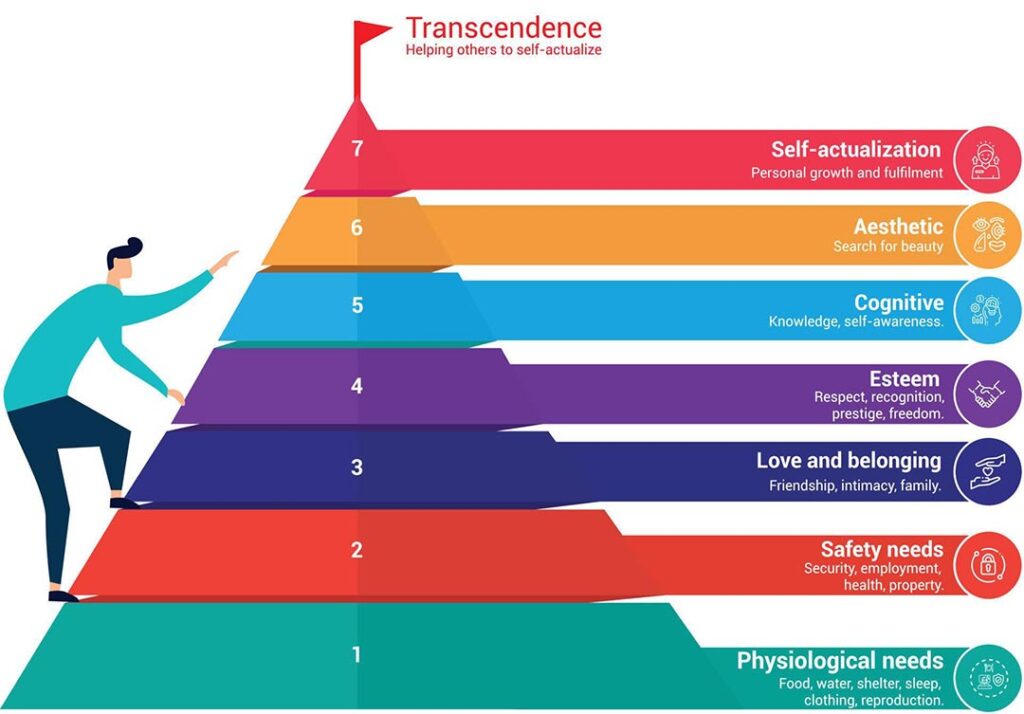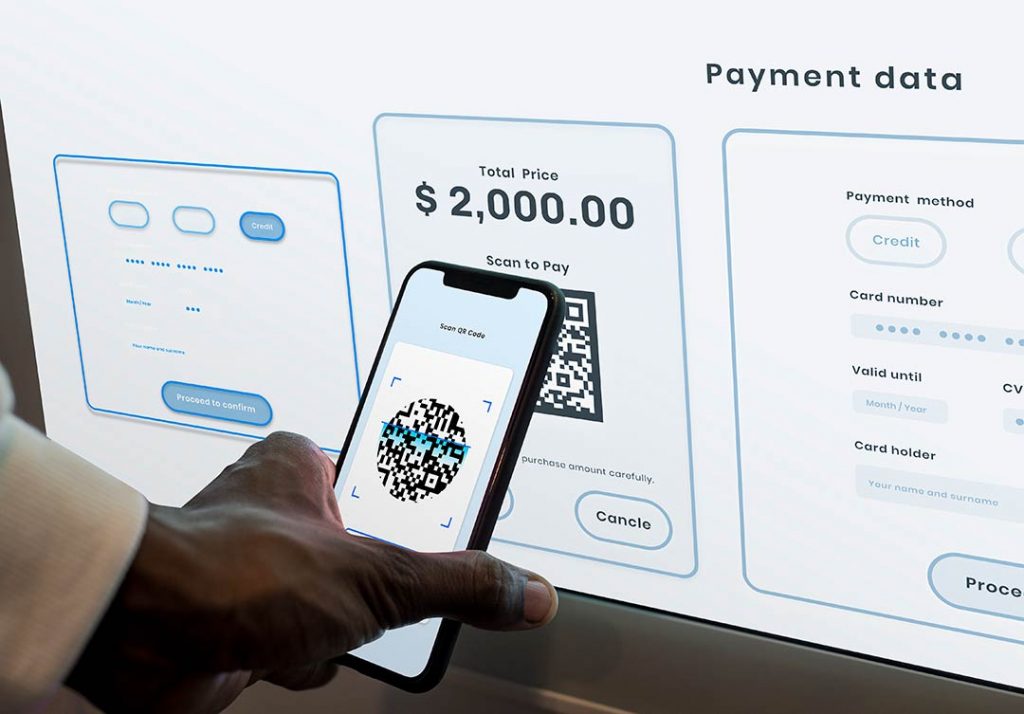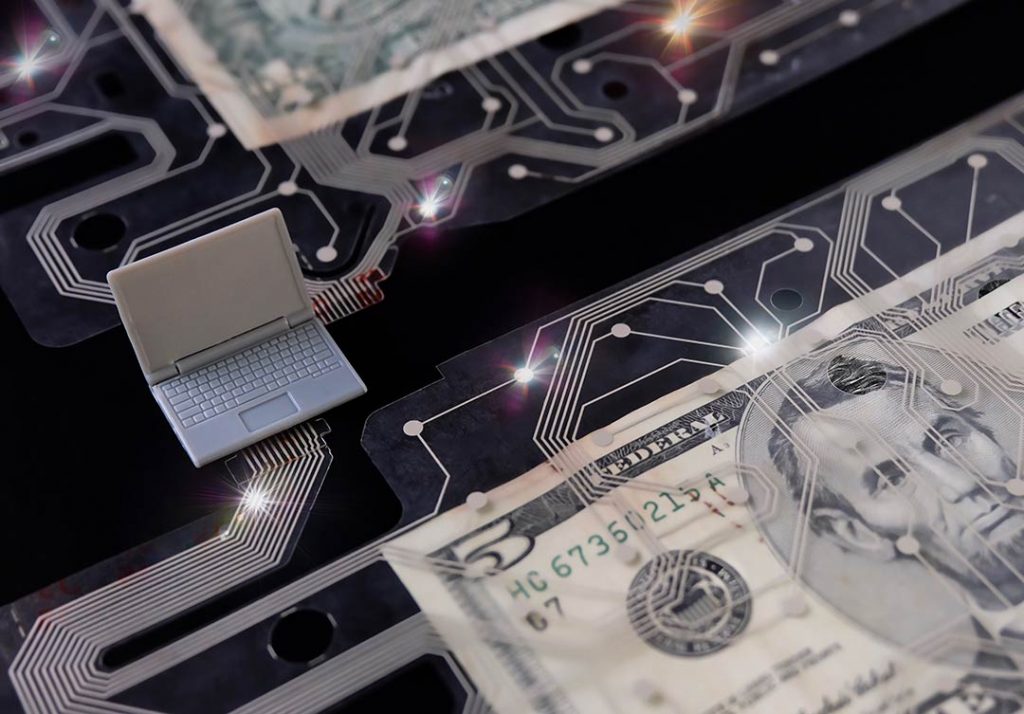We have heard the concepts of metaverse, artificial intelligence and machine learning very often. These concepts, which are very popular, used to only find their place in science fiction movies, but now they have become a part of our lives. These applications, which work in the background while shopping, doing research on the computer, deciding where to go on vacation, and much more, started to make our lives easier in finance and banking transactions.
Artificial intelligence basically makes the cost-centered approach to profit- centered in the financial field. In E&Y's press release dated February 20, 2020, artificial intelligence was identified as the most important driver of growth in the financial services industry. Artificial intelligence technologies stand out with their increasing emphasis on customer loyalty and satisfaction, their focus on customer experience, and their structure that automates all financial transactions.
According to McKinsey's September 19, 2020, 'AI-bank of the future: Can banks meet the AI challenge?' report, AI has the potential to unlock $1 trillion a year in value for banks. That's why banks have one of the largest value creation potential industries. Banks that want to create this value should turn into AI-first banks.
Artificial intelligence is used in the banking sector at a rate of 95% in the retail segment, 30%-40% in the SME segment, and almost 0% in the commercial corporate segment. If banks put their traditional structures into an innovative process and invest in artificial intelligence and machine learning, they can come to a stronger position in the future competitive war.
In banking, customers want their data to be kept securely, while performing transactions quickly and comfortably. Artificial intelligence technologies, which cause striking advances in both security and comfort, are making important developments in order to improve customer experience in banking and reduce operational costs of banks.
Automatic credit scoring, virtual assistants, chat-bot, face recognition systems, signature reality detection, emotion analysis of people, determination of which transaction customers will take from which channel and much more are the new innovations in the financial sector.
Thanks to automatic credit scoring, the credit score can be learned instantly instead of a time-consuming review process, both inspections and customer experience become faster with signature authenticity detection, and system security is much higher with the face recognition system. In addition to all these, the most prominent feature where artificial intelligence shines in the financial world: chat-bot.
While chat-bot technology is primarily a robotic process, as a result of natural language analysis, customers experience as if there is a human on the other side. While doing basic banking transactions via chat-bot, you can ask him about the words you don't know in the financial field. In the future, a company may have separate chat-bot technologies for each department. In this way, interdepartmental and intra-departmental transactions can be accelerated and costs can be minimized.
While artificial intelligence is so much in our lives, when we examine the concept of Metaverse that emerged with Web 3.0, it is seen that there is still much more uncertainty. Metaverse, by definition, refers to a virtual world where you can have fun, socialize and relax. In short, it is a combination of our physical and virtual lives. Blockchain technology, which has been on the agenda recently, has embodied the future place of this concept. Along with blockchain technology, cryptocurrencies and NFTs that can be used in the metaverse have entered our lives. Therefore, the finance and banking sector has started to prepare for significant changes. In the future, all banking transactions can be moved to the metaverse universe, and the meaning of banking that we are used to now may change completely, all physical transactions may disappear. NFT, blockchain technology and cryptocurrencies could become a part of banking. The first, largest and most notable breakthrough in finance was made by JPMorgan, the bank with the world's largest share value. He opened the first bank branch of the Metaverse universe with the name 'Onyx'. In the report he published, he called the economic activities carried out in the virtual universe 'meta-economy'. With this breakthrough, JPMorgan aims to enable game platform providers in the metaverse universe to perform financial transactions, prevent financial-level illegal transactions, create a suitable environment for easy commercialization, and scale the metaverse industry worldwide with multiple currencies and payment methods, thanks to bank-grade products and digital asset platform.
Share:
Related Articles

Understood Employees Contribute and ...
In the corporate world, we often hear statements like: “They’re talented, b ...

The Silent Power of Corporate Succes ...
In today's business world, organizations operate in an environment shaped b ...

Customer Relations and Training in B ...
Bancassurance, a business model in which banks market insurance products to ...

What Awaits the Business World? A St ...
Digitalization is no longer just a technological trend but a necessity for ...

Digital Transformation in Conflict M ...
Conflict is a reality we encounter in all aspects of life. Whether at home, ...

The Road to Success: Market Dynamics ...
In today’s rapidly changing market conditions, the importance of management ...

Leadership in the Digital Age: A New ...
Leadership in the digital age requires embracing continuous learning, innov ...

Mastering Risk Management
Mastering risk management is not merely an option for businesses but a nece ...

International Banking in Germany: A ...
Germany, with its strong industrial structure, high-technology products, an ...

Leadership and Maslow's Hierarchy of ...
Abraham Maslow's hierarchy of needs is a fundamental psychological theory u ...

Leadership and Sustainability of Org ...
Today's business world is characterized by continuous change, technological ...

The Importance of Coaching Skills f ...
The Importance of Coaching Skills for LeadersCoaching skills are essenti ...

Fintech in Turkey: The Rise of Finan ...
Fintech in Turkey: The Rise of Financial Technology

Bancassurance
Bancassurance is a business model that is among the financial services offe ...

Banking and Frankfurt
When the banking and finance sector in Europe is analyzed, it is seen that ...

Digital Banking and Germany
Digital banking is a banking service where customers can do their banking o ...

Banking in Germany
Euro used since 2002 in The Eurozone, the currency of 19 EU members. There ...

Strategic Communication
Strategic communication plays a critical role in the success of an organiza ...

Importance of Supply Chain
The supply chain is a critical factor in which a company manages the flow o ...

Key to Success: Going Digital
Digital transformation is a transformation process that aims to increase th ...

Welfare
Poverty and inequality are one of the biggest challenges the current societ ...

ChatGPT
ChatGPT, developed by the OpenAI company known for its work and research in ...

What is Emotional Intelligence and w ...
Emotional intelligence (also known as emotional quotient or EQ) is the abil ...

The Importance of Women's Employment ...
Women's participation in the workforce is closely related to the level of d ...

Digital Banking II – Digital Banking ...
A serious step taken for the spread of “digital banking” in Turkey, providi ...

The Perception of Morality within Ma ...
If everybody in the world jumped out of a window, would you? This question ...

Digital Banking
Digital banking is a banking technology that offers customers the opportuni ...

Banking, Artificial Intelligence and ...
We have heard the concepts of metaverse, artificial intelligence and machin ...

Green Asset Ratio
Sustainable finance has an important place among the investments made for t ...

Servant Leadership
There is an effective form of management that we often hear about today: se ...

Sustainability In The Global Banking ...
Before Covid-19 wreaked havoc on the world’s economies, the global banking ...

Revolution of Digital Banking
With the European Central Bank considering to investigate for a digital cur ...

Taking Action and Making Decisions i ...
Uncertainty is the fact that an event is not within the framework of certai ...

Wind of Change
Change is an important concept that must be managed for employees at all le ...

Organizational Justice
“What is justice? Giving water to trees. What is injustice? To give water t ...

Open Banking
Digital transformation has started to show its effects in every aspect of o ...

Digital Literacy And Corporate Life
There are many innovations that managers and employees need to follow in or ...

Financial Literacy
The words money and economy are two important concepts that have a great pl ...

Sustainability and Bank
The solutions we have found to our various needs throughout history and ada ...

Adaptability, Flexibility and Leader ...
Being able to adapt to changing conditions is very, very important not only ...

Creativity and Leadership Relationsh ...
The world is getting more competitive every day. For this reason, the servi ...

Competitive Analysis and Banking Sec ...
Competition analysis requires you to examine your direct and indirect compe ...

Delegation in Management
The statements "two heads are better than one" or "teamwork makes the dream ...

Climate Change
All creatures evolve to best adapt to environmental impacts. Those who are ...

Change of Banking Service Channels i ...
Global crises such as the pandemic, force the existing structures to change ...

Innovation
It is undeniable that innovation has a very important place in today's worl ...

Artificial Intelligence
Artificial intelligence is no longer just something specific to science fic ...

Entrepreneurship
Entrepreneurship is the process of starting a new business that incorporate ...

Global Leadership
The world is changing day by day and the information we have today is out o ...

Resilience and Leadership
We encounter many events in life that cause us difficulties and stress. How ...

Entrepreneurial Spirit for Leaders
Why is important for success? The conventional perception of entrepreneursh ...

Finance Leadership in a Pandemic
Crises bring along a period in which institutions need to review their fina ...

Crisis Management
Crisis is a state of tension that puts the existence and goals of an organi ...

Strategic Leadership and Pandemic
Strategic Leader is the person who sets the roadmap to achieve the ultimate ...

Awareness, Appreciation, Success
It is very important for a person to recognize himself, discover his power ...

Woman and Career
People who are raised by unemployed mothers have a mother model in their mi ...

Conflict Management
In the broadest sense, conflict is disagreement between two or more people ...

Leading with Kindness
Kindness is an important virtue. Kindness in all areas of life makes relati ...

Smart Meetings
Meeting management is the process of managing all stages and components of ...

Negotiation Management
Negotiation is defined as a dialogue aimed at reaching a common and benefic ...

Virtual Leadership
The repercussions of the digitalization process in business life were sprea ...

Manager and Patience
Patience is an important concept in management. Patience is active, not pas ...

Being All Ears
Human beings differ from other creatures in their way of communicating. Com ...

Networking
The fact that managers in the corporate world act with awareness of network ...

Asking Strong Questions
For managers, asking a strong question is an important skill. Managers, who ...

Managing Yourself
The manager at work is in communication with the other parts of the busines ...

Mental Immunity
In the fight against Coronavirus (Covid-19) pandemic, knowledge and awarene ...

